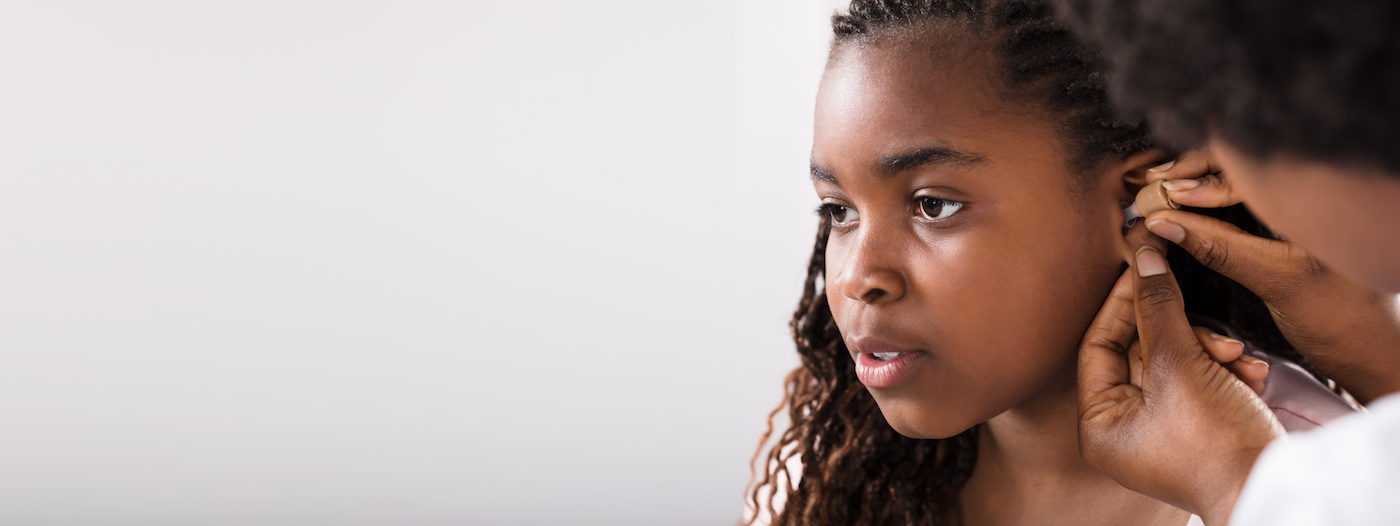- Services
- Patients & Visitors
- For Healthcare Providers
- Research
- Contact
- Pay My Bill
- Careers
- Donate
- My Health Record
- +1 (401) 227-3669
 Hearing Loss FAQs"
class="bg-img"
fetchpriority="high"
loading="eager"
decoding="async">
Hearing Loss FAQs"
class="bg-img"
fetchpriority="high"
loading="eager"
decoding="async">
Written By: Women and Infants on August 26, 2020
Our inner ears are filled with fluid which travels in a wave-like movement when sound is present. The wave of fluid stimulates delicate nerve endings within the inner ear. The louder the sound, the stronger this wave becomes. A very strong wave, caused by a very loud sound, can permanently damage the nerve endings in the inner ear just as a strong wave at the beach can permanently erode the sand and dunes on the shore.
Sounds over 80 dB (decibels) can permanently damage the nerve endings in our ears, though the extent of this damage is dose dependent. This means that the damage caused is a function of both the loudness of the sound and the time that our ear is exposed to it. A 90 dB sound is apt to be damaging after more than 8 hours of exposure, while a 95 dB sound will cause damage after four hours. A sound of 115 dB will cause permanent damage after only 15 minutes, and a sound of over 125 dB can instantly cause damage.
Noise damage to our ears is dependent on both the loudness and the duration of the sound we’re exposed to. Studies have shown that listening to an iPod or other personal listening devices at 80 percent volume for 90 minutes or less each day does not increase the chances of incurring a hearing loss. If the volume is louder, the time of listening needs to be shorter to remain safe. It is important to remember that everyone is different in the way their ears will be damaged by loud sound. Also, listening to music through earphones is not an acceptable way to protect your hearing from other noise, like a lawn mower. When you are working around loud equipment, use noise protection plugs to protect your hearing.
As we get older, the tiny nerve ending in our inner ear, called hair cells, tend to become damaged and die. This process can be exacerbated by exposure to loud noise, a family history of hearing loss, and by smoking. Once these hair cells are gone, a person’s hearing is permanently damaged. Hearing loss commonly starts around age 55, though someone who has had a noisy occupation for much of their life may have noticeable hearing loss at a much younger age. As many as half of individuals over the age of 75 have permanent hearing loss.
Tinnitus is a ringing or buzzing sound in the ear, described as the perception of sound in the absence of an actual sound source. No one really knows specifically what causes this to happen, though it has been associated with excessive earwax, hearing loss, auditory system tumors, abnormal blood pressure, and many other conditions as well as over 200 medications, chemicals, and herbs. There is no cure for tinnitus. Different people can treat their tinnitus differently with various degrees of success. Treatments include herbal supplements, tinnitus maskers, Tinnitus Retraining Therapy, and hearing aids. If you experience ringing or buzzing in your ear more than once or twice a week, consult a physician or an audiologist.
Vertigo is the perception of movement when one is in fact not moving. This is most commonly described as a sensation of spinning, but can be other sensations such as rocking, weaving, bobbing, etc. Vertigo is most often a symptom of an inner ear disorder, but is also commonly associated with migraine conditions. If you think you are experiencing vertigo, consult a physician or an audiologist.
Disclaimer: The content in this blog is for informational and educational purposes only and should not serve as medical advice, consultation, or diagnosis. If you have a medical concern, please consult your healthcare provider or seek immediate medical treatment.
Copyright © 2026 Care New England Health System